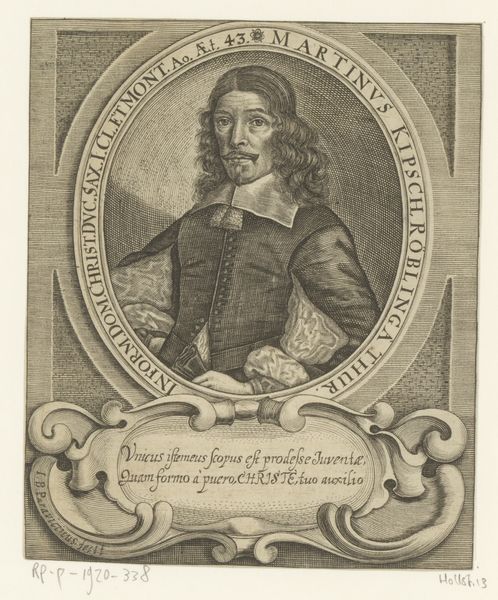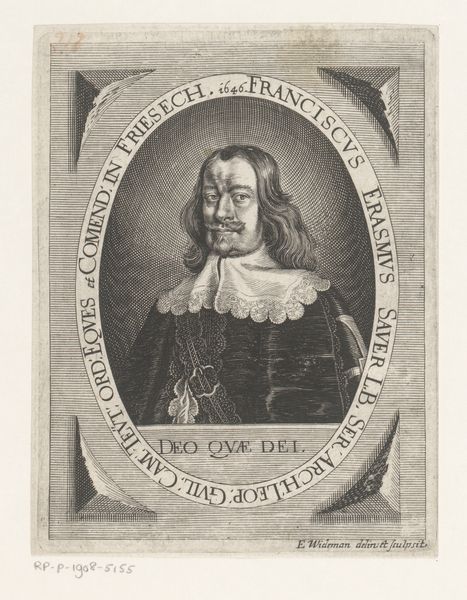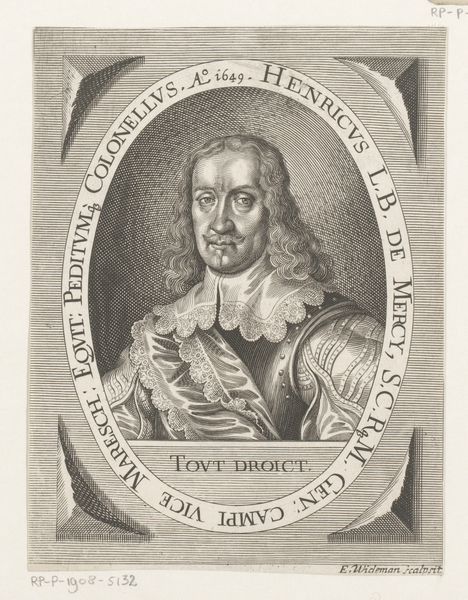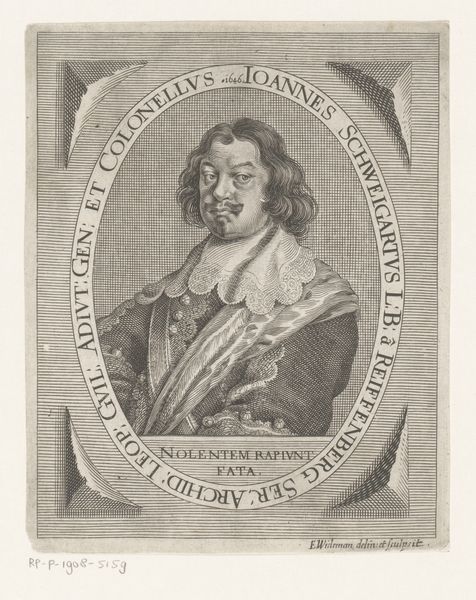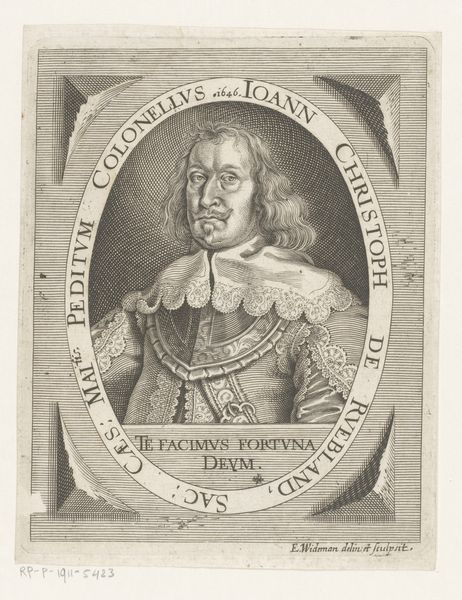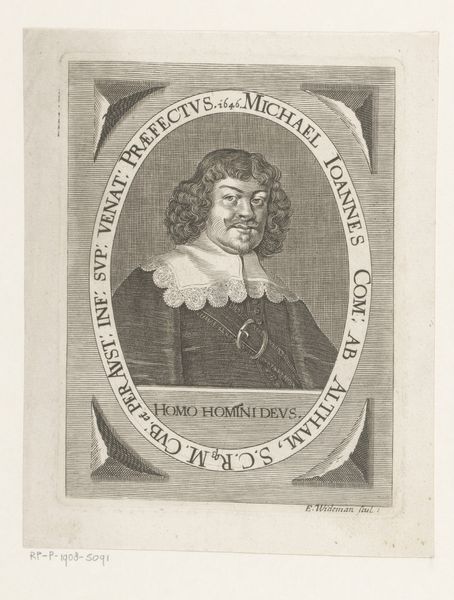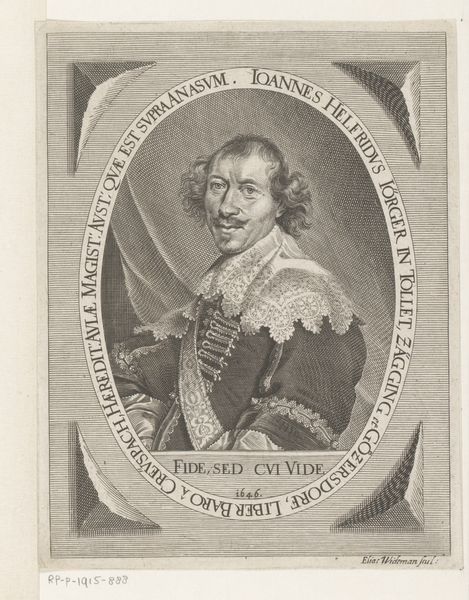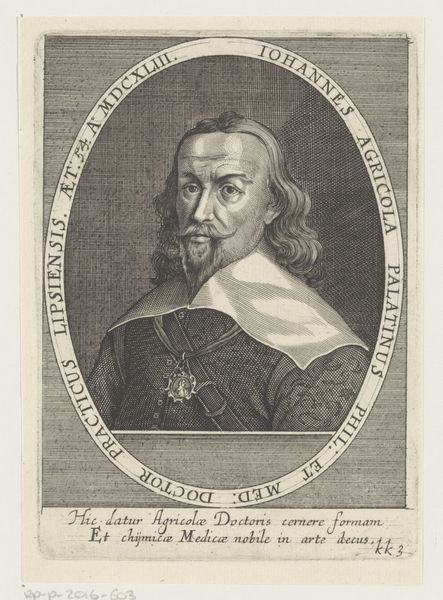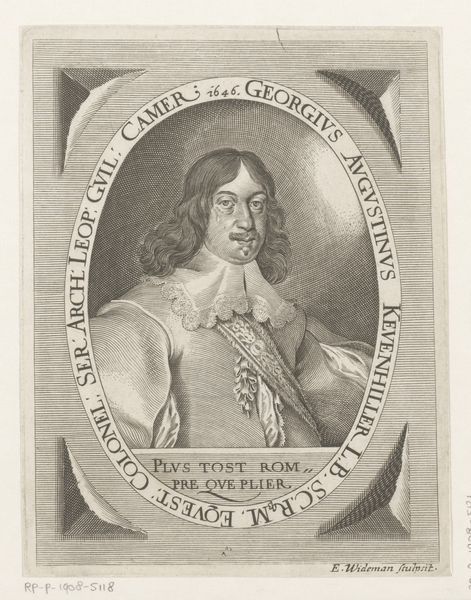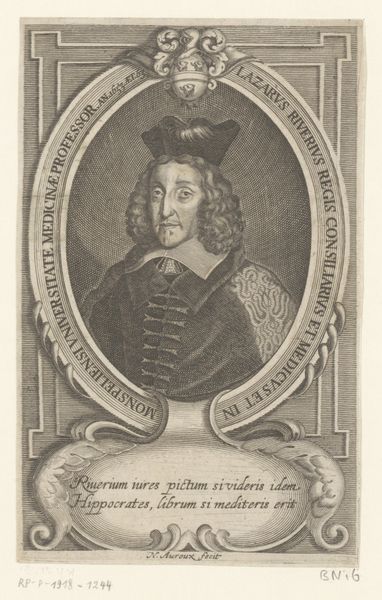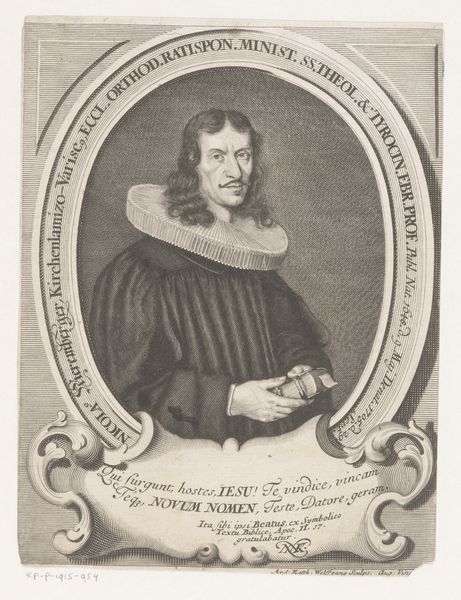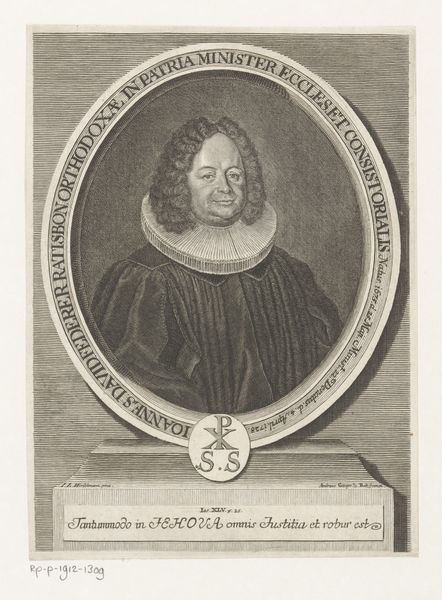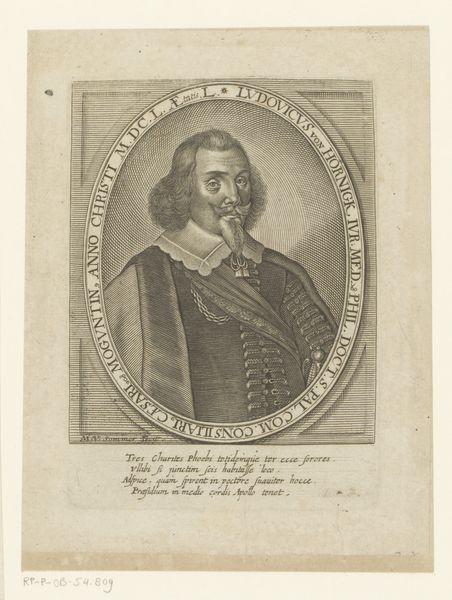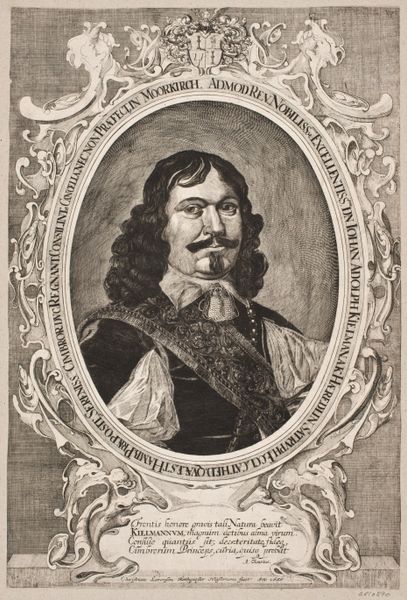
metal, engraving
#
portrait
#
baroque
#
metal
#
old engraving style
#
history-painting
#
engraving
Dimensions: height 151 mm, width 118 mm
Copyright: Rijks Museum: Open Domain
This engraving, created by Elias Widemann in 1645, presents a portrait of Johann Bernhard von Knöringen within an oval frame, executed with precise lines and detailed textures. The composition, structured around the central figure, invites a contemplation of form and symbolic representation. Widemann uses line and form to convey status and character. The subject is encased within a border of text, itself framed by geometric devices, creating a layered effect. The lines of the engraving, from the tight curls of hair to the intricate lace collar, function as signs of wealth and position. This attention to detail invites the viewer to decode the subject's identity, and the formal arrangement reinforces a sense of hierarchy. The portrait can be interpreted as a semiotic structure, where elements like clothing and inscription signify identity. Widemann’s work exemplifies how formal elements in art create a dialogue between the aesthetic and the symbolic. The engraving remains a potent reminder that art is not just about imitation but about constructing meaning through form.
Comments
No comments
Be the first to comment and join the conversation on the ultimate creative platform.
